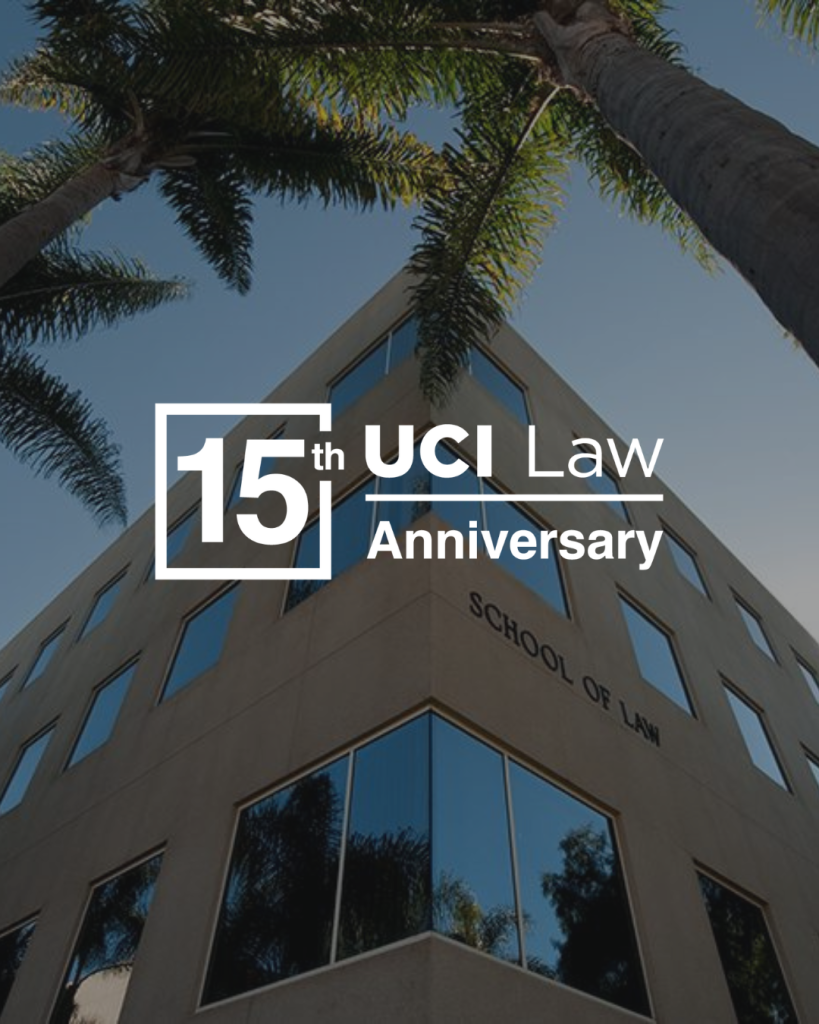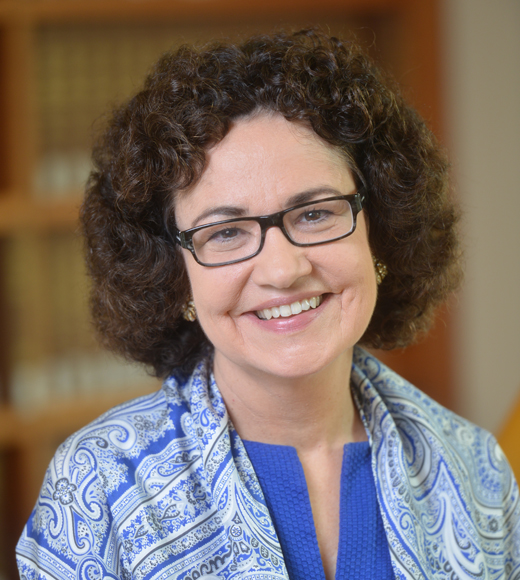Profiles in Excellence: Reflections on UCI Law's 15th Anniversary

The University of California, Irvine School of Law is the culmination of several generations of revolutionary dreamers. Those not satisfied with the status quo who wanted to redefine, reimagine and reinvent legal education. As the Law School marks its 15th anniversary, our “Profiles in Excellence” Q&A series highlights members from our collaborative and interdisciplinary community — including extraordinary students, world-renowned faculty, dedicated staff and engaged alumni — and their unique experiences at UCI Law.
In our first Q&A, Distinguished Professor Emeritus of Law Rachel Moran shares her proudest accomplishment at the Law School, offers her advice to students and faculty, and looks back at UCI Law’s evolution from her perspective as a founding faculty member.
 Rachel Moran
Rachel Moran
Distinguished Professor Emeritus of Law
Professor of Law, Texas A&M University School of Law
Professor Moran’s scholarship has focused on sources of inequality and sites of opportunity encompassing education law (particularly bilingual education), civil rights, race and the law, and critical race theory. Prior to her appointment at UCI Law, Prof. Moran was the Michael J. Connell Distinguished Professor of Law and Dean Emerita at the University of California, Los Angeles School of Law, becoming the first Latina dean of a top-ranked US law school. Before that, Prof. Moran was the Robert D. and Leslie-Kay Raven Professor of Law at the University of California, Berkeley School of Law. In addition, Prof. Moran was a founding faculty member of UCI Law from July 2008 to June 2010. In Fall 2023, Professor Moran joined the faculty at Texas A&M University School of Law.
What is one of your proudest accomplishments at UCI Law?
Shortly after arriving at UCI Law, I launched the “Reimagining the Latinx Experience” book talk series with the help of my research assistant Isabella Ordorica. The series gave authors an opportunity to share findings and recommendations as well as receive thoughtful commentary from colleagues. Throughout the pandemic, we hosted the talks online without interruption, and when Isabella departed, my new research assistant Elizabeth Schatz Cordero stepped in to ensure that everything ran smoothly. I enjoyed each of the talks, learning a great deal and leaving with interesting ideas for the future. I look back and think that hosting the series helped to sustain intellectual community at a difficult time.
What advice do you have for new faculty?
At UCI Law, new faculty should benefit from colleagues who can serve as mentors and champions. The one-on-one relationships are important, but so is the general scholarly environment. There are lots of talks that will allow junior faculty to reflect on different ways to approach and write about pressing legal issues. The librarians also are tireless in their support for research and teaching. Last but certainly not least, new faculty will benefit from dedicated and motivated students. I was always impressed with everyone in my classes, and I had wonderful research assistants.
What advice do you have for students?
Your years at UCI Law will be a tremendously transformative time in your life. You will master knowledge and skills, but you will also develop relationships that support you as you begin your careers. The faculty are eager to be of assistance, so don’t be afraid to go to them when you need help. Your peers are also a wonderful resource, offering a range of perspectives on the law school experience. You should be sure to take advantage of the many extracurricular opportunities as well, including the pro bono program, moot court and other advocacy programs, and student-led initiatives. Always remember that you are building your professional identity — in every facet — from the day you begin at UCI Law.
What has been your most memorable moment as a professor?
My most memorable moment came in spring 2020 when I received notice that the law school would be closing due to the coronavirus pandemic. At the time, we thought that the shutdown would be brief, but as we all know, it went on much longer as COVID-19 surged time and again. When we got the notice, I was teaching Torts and suddenly had to shift from in-person instruction to an online class. Like most, if not all, of my colleagues, I had never taught remotely before. Along with educators throughout the country, I quickly learned the ins and outs of Zoom to be sure my students received quality instruction. What makes the time memorable is the way that people rose to the occasion. The faculty pivoted to Zoom, the staff provided support for the transition, and the students accepted the sudden change with good grace. Even as we faced a time of fear and uncertainty, we soldiered on with a sense of purpose and determination.
As UCI Law celebrates its 15th anniversary, what are your thoughts about the school’s evolution?
UCI Law is a community marked by idealism and esprit de corps. Partly, this is because of its origin story, which I witnessed as a founding faculty member. By design, the school was meant to be small, and from the outset, it was dedicated to public service. This mission attracted people who hoped to make a difference in legal education and the world. As a young school, UCI Law still conveys a sense of possibility — a belief that innovation can succeed as well as a commitment to continue experimenting. That’s one reason that I have chosen to keep teaching at Texas A&M University School of Law, another new law school with big ambitions.
